I've lived in Southern California for more than a decade here are 15 things anyone from here knows to be true
Melissa Wells

- Southern California is more than sandy beaches and celebrity sightings.
- I'm a Southern California native, and there are many things only those who live here understand.
Born in Southern California and then lured back after college, I've spent more than a decade here — first southeast of Los Angeles and now northeast. I've traveled all across the region, down to the border of Mexico and up to San Francisco, journeying through our deserts, forests, beaches, and mountains.
But to some, Southern California is just the sunny land of sandy beaches and palm trees, or the home of celebrities and Hollywood movies.
That picture of California — especially Southern California — speaks very little to the quirks and qualities of the Golden State that only natives like me will understand.
Here are 15 things you'll get if you're from here.
It's SoCal, not "Cali," but it's LA, not "Los Angeles."
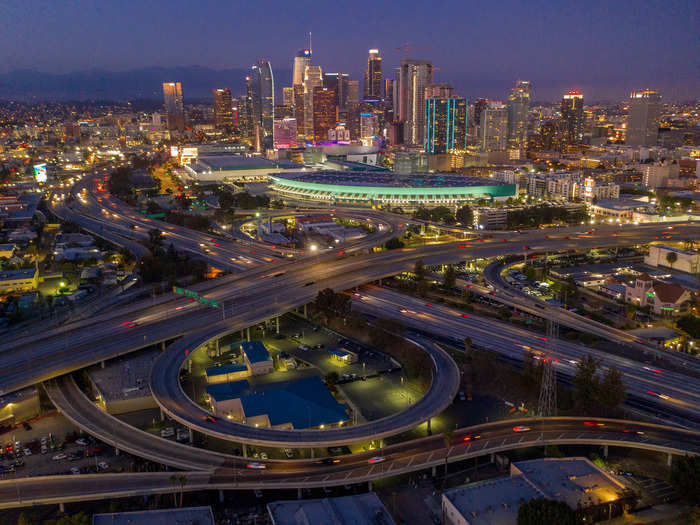
The only time we ever abbreviate California is when we refer to either the north or south of California: NorCal or SoCal. We know you're not from here if you refer to the Golden State as "Cali." And "Cal" is only used in reference to the University of California, Berkeley.
For Los Angeles, on the other hand, it is always LA. It's unlikely you'll catch an Angeleno calling our City of Angels by its full name.
LA isn't just Hollywood.
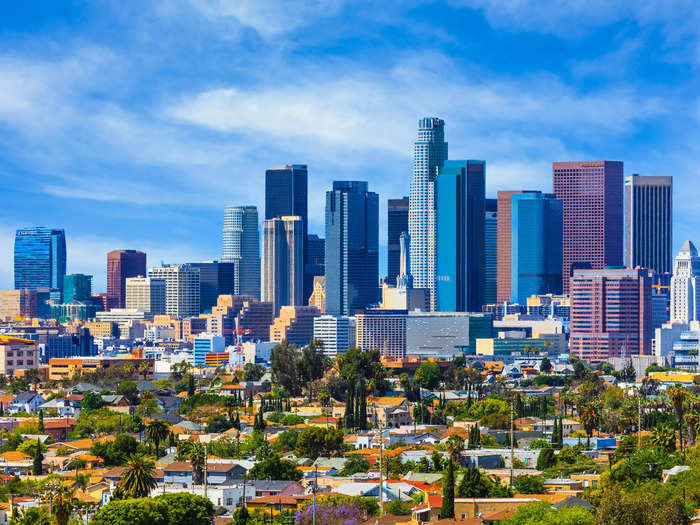
Much like New York isn't just Manhattan, LA isn't just Hollywood — not even close.
Hollywood is only about 25 square miles in the grand scheme of LA, which measures just over 500 square miles, TimeOut reported. It is also the largest city in California by population, with 3.89 million residents.
LA is a great city: We have a diverse food scene and impressive sports teams, and there are amazing spots to explore, like the Getty Museum or Griffith Park. We're also surrounded by the mountains and the ocean, and you can't beat the weather.
Earthquakes are the norm.
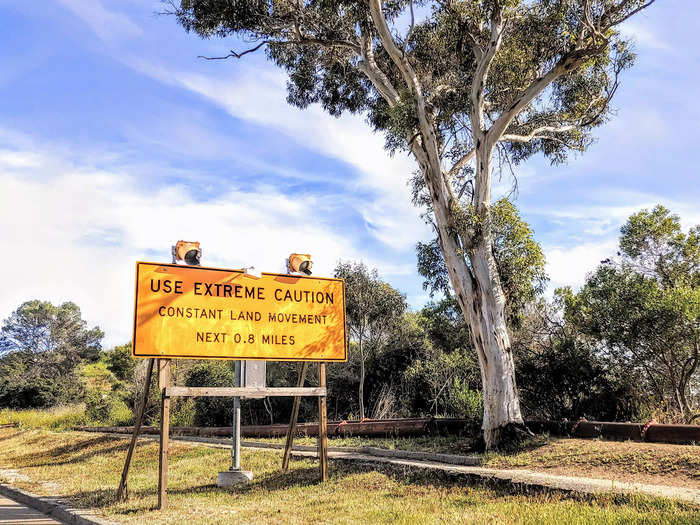
Hurricane Hilary recently hit us, and we would take an earthquake over that kind of storm any day.
We get so many earthquakes because of the Pacific and North American plates grinding past each other in opposite directions, the Southern California Earthquake Center reported. The friction created causes sudden, jerking movements that travel through the ground and create that shaking we feel.
But earthquakes are so ingrained in our everyday lives that SoCal natives have just become immune to them. In fact, every year California encounters hundreds of earthquakes.
To us, though, they infrequently affect our lives (unless it's a big one) because most of them are of low magnitudes, with some not even felt by anybody. According to the California Department of Conservation, we only get two or three large earthquakes annually that are strong enough to cause some damage.
60 degrees is freezing.
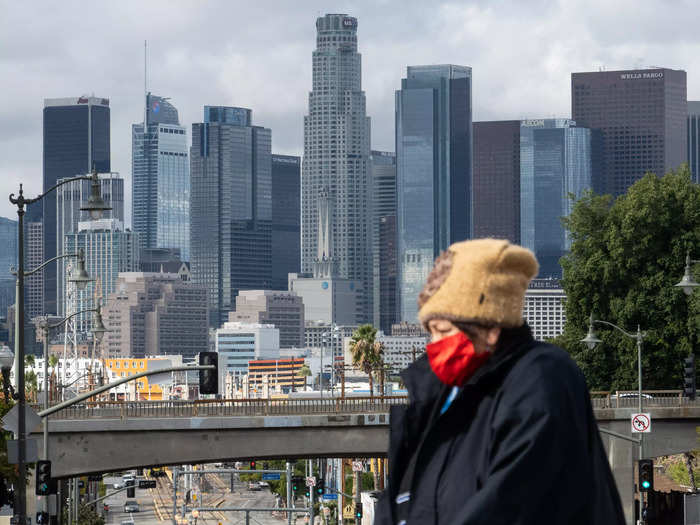
Listen, to Southern Californians, weather is like music: It changes the entire tone of any setting. In our case, the constant sunshine and warm weather puts everybody in a good mood.
When the temperature dips below the 70s, we break out the winter coats and scarves and gloves and boots. It's normally as close as we get to winter.
Cars are the only way to get around.
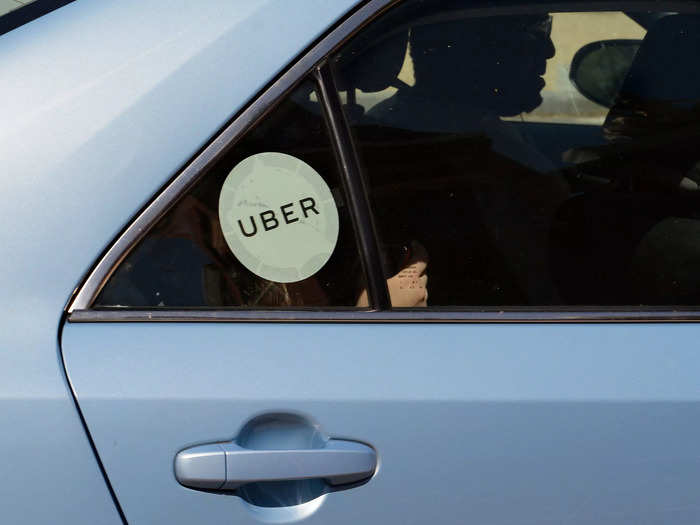
You'll have to forgive us for our lack of public transportation. The fact is, cars are how we get around. But don't even think about taking a taxi — depending on where you're going, it could cost you an arm and a leg.
Instead, Uber or Lyft is becoming the SoCal "local" transportation method. And trust us, it's cheaper than you think.
But we can't drive in the rain.
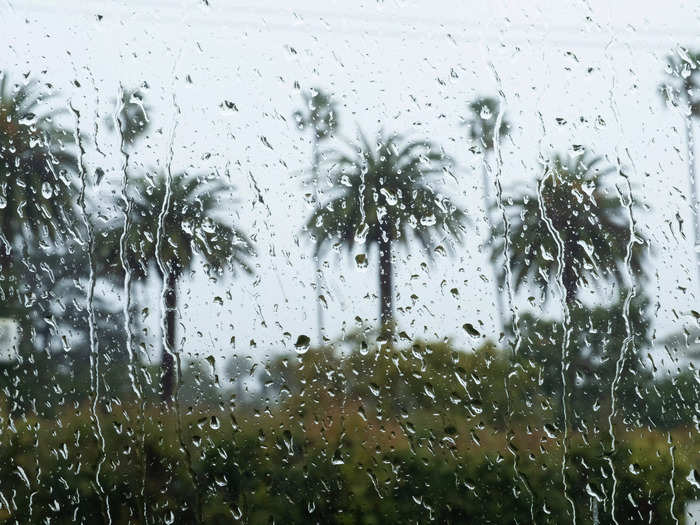
Californians have frequently dealt with droughts so we are happy when it rains, but the stereotype that SoCal drivers can't operate under rainfall has some truth to it, in my experience. Rain always seems to result in traffic and slowdowns. One simple reason for this could be that many people in the region never really learned how to drive in a weather condition that rarely affects us.
Not to mention, some of us fear driving when it's wet because it gets super slick with all the oil on the road that the infrequent rains allow to build up. Once it starts drizzling, be careful out on those roads and expect it to be backed up.
Traffic is just a part of our daily existence.
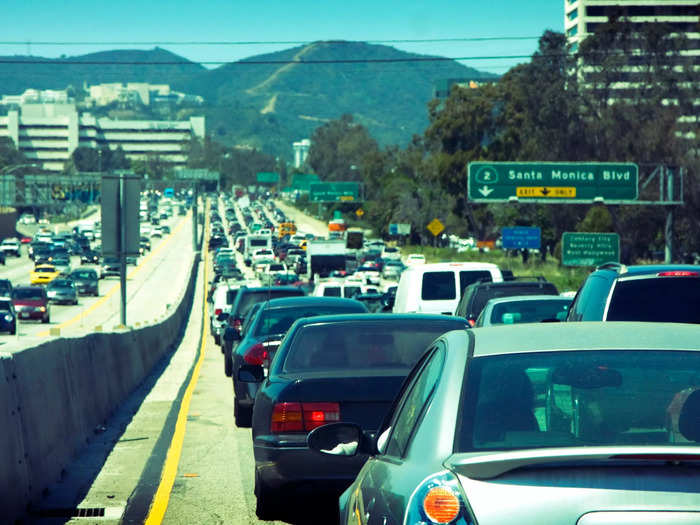
The average driver loses over 100 hours in LA traffic every year, according to the Southern California Association of Governments, or SCAG. The cost of that congestion per driver in LA was $1,524, according to transportation data firm INRIX's yearly ranking of the most congested cities in 2019.
Our biggest tip? Don't underestimate it. In fact, it feels like we spend more time sitting in traffic than anywhere else.
As a result, we have a very specific way of talking about our roadways.
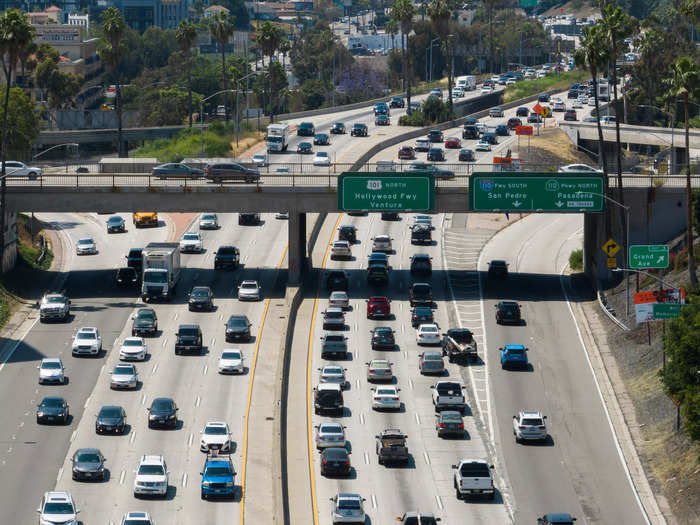
First, we call them freeways, never highways.
We may be the only people in the country to put "the" before the number of a freeway route. If someone tells you to take "the" 15 to "the" 210 to "the" 605, they're from here.
Also, we call it the carpool lane, not the HOV. We don't even know what HOV stands for.
Plus, we talk in distance, not miles — especially in LA, where 10 miles away means nothing when it takes you an hour and a half to get there.
Celebrity sightings don't faze us.

No, we don't constantly run into celebrities whenever we step outside our front door. That said, celebrities are like neighbors, not strangers.
Whether it's spotting Wiz Khalifa at Disneyland or Johnny Depp in downtown LA, we don't stare, and we don't rush up for a photo or autograph. Needless to say, we can spot a tourist from a mile away when they freak out over a celebrity sighting.
No, not everyone lives by the beach, and not everyone surfs.
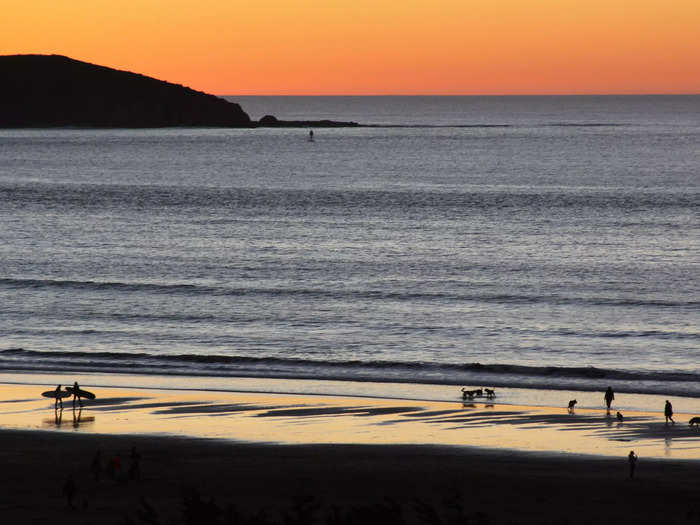
Yes, California is known for its beaches and easygoing, surfer dudes, but like the misconception that LA is just Hollywood, Californians exist outside the scope of the beach, and frankly, many (like myself) don't even know how to surf.
Not only is California diverse in its people, but also its ecosystems: from our deserts to our beaches to our forests to our mountains — you name it, we've got it.
Disneyland over Disney World, always.
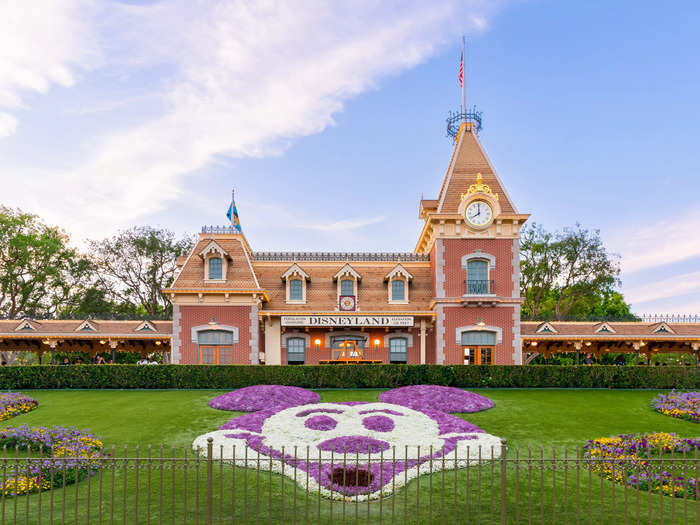
To us, there are many reasons to choose Disneyland over the Walt Disney World resort in Florida.
Californians like me are biased, but we believe Disneyland has a special kind of magic to it that feels more intimate, and more nostalgic. And we indoctrinate each generation after us into the Disney tradition.
Plus, Disneyland was Walt's original park, so we think there's something a little more magical about knowing he actually walked through Main Street.
In-N-Out is not just the king of fast food here, it's a way of life.
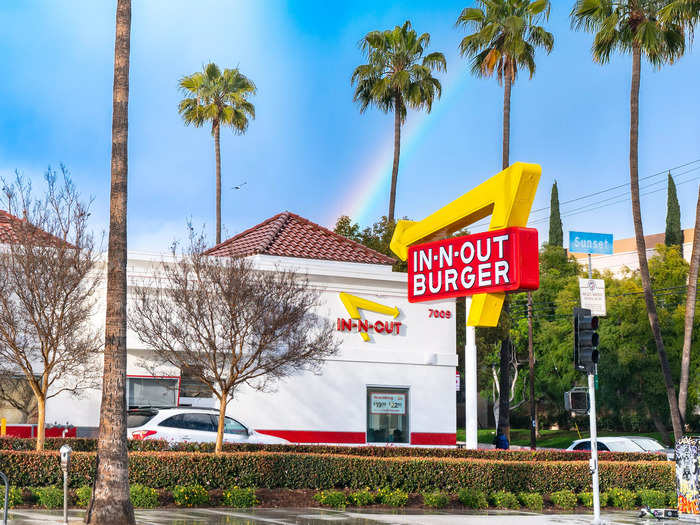
Founded by newlyweds Harry and Esther Snyder in 1948, the first In-N-Out was built in Baldwin Park, Los Angeles, and there are 385 locations across the US, the Associated Press reported in January, with the vast majority still in California.
We're weirdly, deeply proud of In-N-Out, even constructing our own language around it: If you hear someone ask for a double-double animal style — which is two beef patties, cooked in mustard, served with American cheese, pickles, grilled onions, standard toppings and extra of In-N-Out's signature spread on a toasted bun — they're a native.
We have some of the best Mexican food, and Spanglish is a common language.
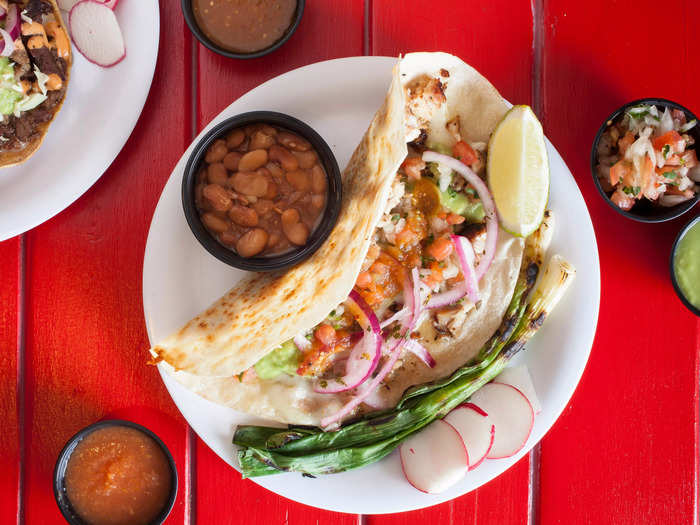
It could be due to our proximity to Mexico, or the strong Hispanic influence of our Mexican communities: Hispanics made up 39.4% of California's population in the 2020 census, making it the largest racial or ethnic group in the state, according to the Public Policy Institute of California.
So if you want delicious and authentic Mexican food, SoCal is the place to find it. Moreover, you'll find we've incorporated Spanish into our vocabulary into what's noted as "Spanglish." It's just another aspect, aside from music and food, of other parts of Mexican culture that have been woven into the fabric of the region.
Being vegan, vegetarian, or gluten-free won't make eating out difficult.
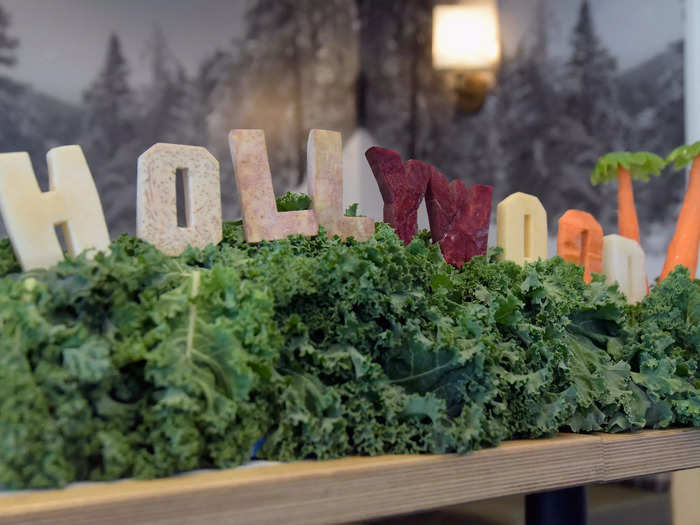
Southern California is known for having cities that are the most vegan- and gluten-free-friendly across the country. There are options for all kinds of dietary restrictions.
Los Angeles was named as one of the most vegan-friendly cities by Thrillist in 2023, while PETA named it the second-most vegan-friendly city in the US, after San Francisco, in 2019. In 2022, a study from WalletHub, as reported by Forbes, showed LA maintained that ranking as the second-most vegetarian- and vegan-friendly city in the US.
We bring our own bags to the grocery store.
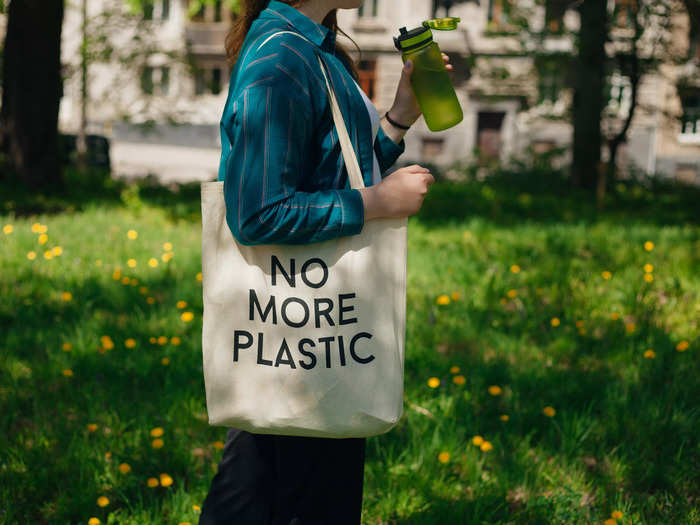
When you go to the grocery store here, you will need to bring or buy your own reusable bags. We're very anti-plastic bags — it's almost shocking it took until 2016 for California voters to approve the statewide Single-Use Carryout Bag Ban, the first state to do so.
Since then, eight states have adopted statewide plastic bag reduction laws: New Jersey, Connecticut, Washington, Delaware, New York, Maine, Oregon, and Vermont. Twenty-eight other states implemented over 500 local plastic-bag ordinances as of 2021, according to the Surfrider Foundation.
Popular Right Now
Popular Keywords
Advertisement